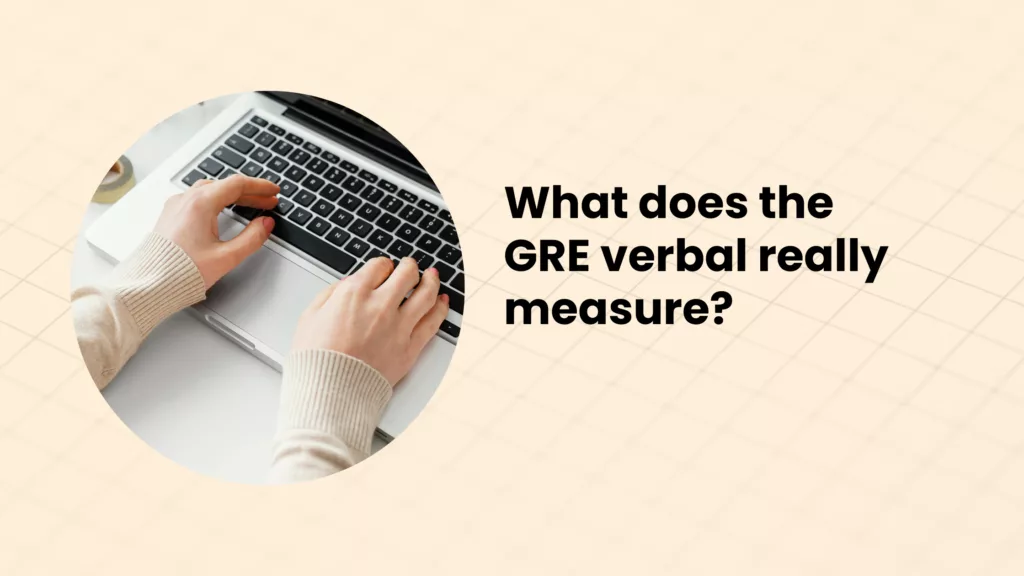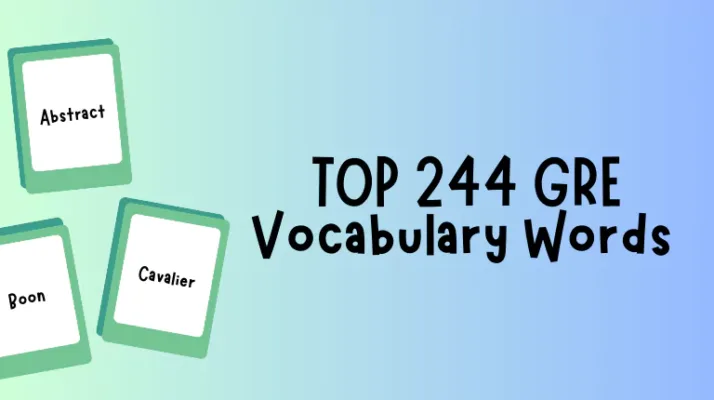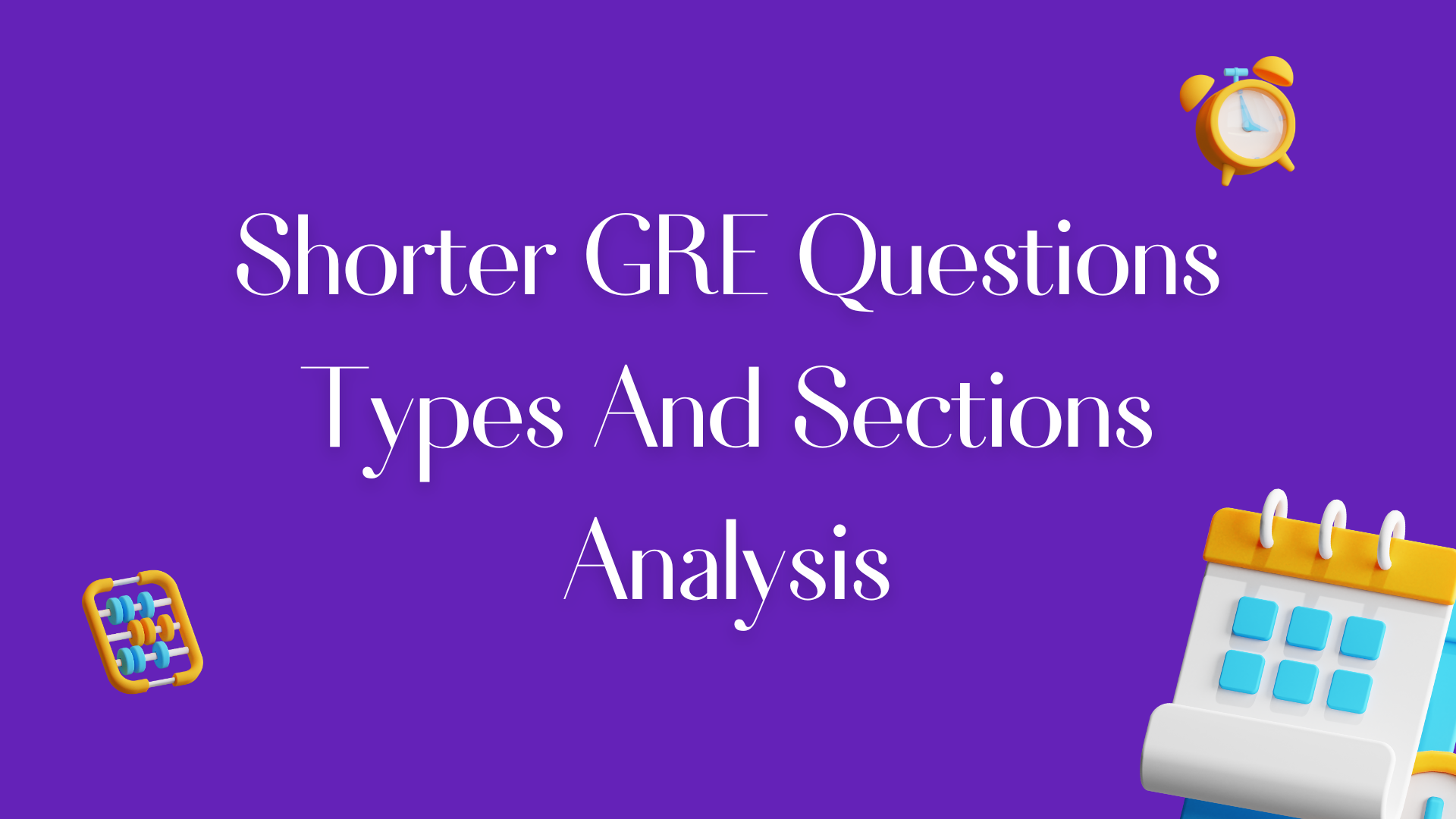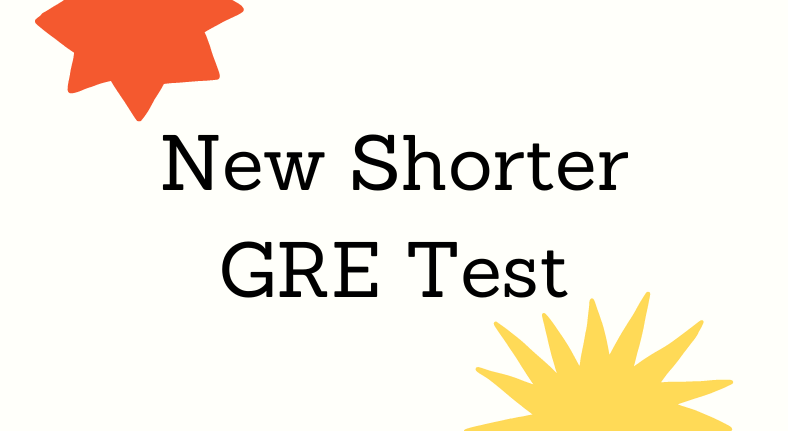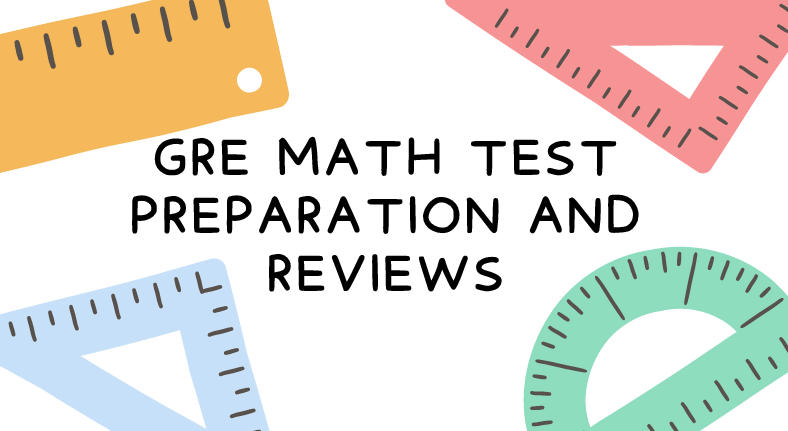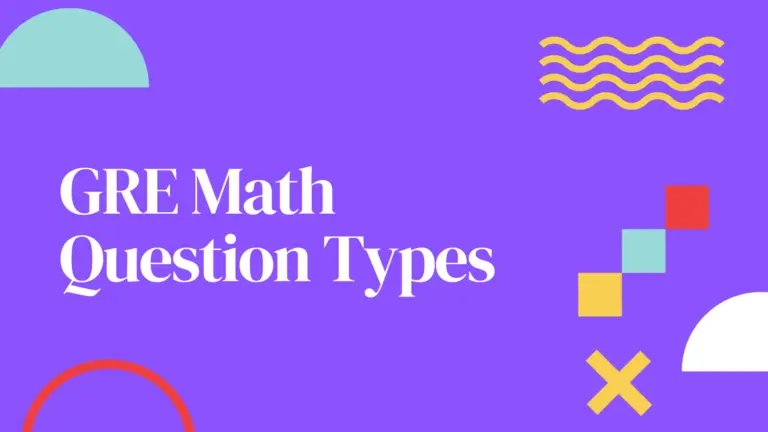The answer is simple: people do not have a good idea about what the GRE Verbal really measures, so they do not prepare for it the right way. There are tons of guidebooks and websites that help with GRE preparation, but none of them tells you what the GRE really measures. I feel that is because no one has really figured it out.
Background
When I had to take the test in May, I prepared for a little over a month, mainly by practicing. My years of research on ETS questions, gave me enough data to see patterns in the questions and to figure out the techniques that work for them. I scored 170 in the quantitative section and 168 in the verbal section. The reason I got those scores, I believe, is that I have figured out what the GRE really measures. And I am here to share that with you.
Verbal Section
In this article, I will talk about the verbal section in particular, and talk about the broader theme behind the section, not the ways to solve particular questions.
The ETS website says that the verbal section measures “your ability to analyze and evaluate written material and synthesize information obtained from it, to analyze relationships among component parts of sentences, and to recognize relationships among words and concepts.”
What does the GRE measure in the verbal section?
- Understanding and working with written material.
- Knowing and understanding the components of sentences.
- Understanding relationships between words and concepts.
These points are logical. Words are the body of a language, and together with language concepts, you can form sentences. You can form different types of sentences when you learn how to weave together different components of a sentence. And when you put multiple sentences together, you get what ETS refers to as “written material” – essentially, paragraphs and passages.
Most test-prep books and guides cover the topic of “words” quite well. There are extensive tools and techniques for learning vocabulary. I will not talk about those here. Concepts about sentences are also covered to the extent that people can learn to do “text completion” and “sentence equivalence” questions. I will not discuss these in detail here, but there are some key points on this subject later in this article.
What I will talk about is the first point – how do you develop the skill of “understanding written material”?
Are there any concepts involved?
1. Understanding and working with written material
Everyone says that there is only one way to develop this skill: reading. Reading definitely helps, but there is actually a whole range of concepts that can help you learn how to read – and those concepts have to do with writing. There are certain principles involved in good writing. A good passage has an introduction, a body of discussion, and a conclusion. A good paragraph has an introduction, a body of discussion, and a conclusion. If you read any text with this in mind, you start to see how to read in order to extract information from written material.
When I read articles or books, I sometimes read only the first and the last sentences of each paragraph to understand the topic and the main point of the paragraph. A lot of the time, reading those lines is enough for me to understand what the author wants me to know or what their angle is – so I go on to the next paragraph, skipping the body of a paragraph. In case the concept discussed in the paragraph is new to me or if I feel I need an explanation, I read the rest of the paragraph as well. This helps me read fast and read only the information I feel is relevant and/or new to me. Using this method can help the reading comprehension portion of the GRE.
A lot of people struggle with determining the main point of a passage. You can figure that out easily just by reading the first and the last paragraphs of the passage while skipping the rest.
2. Understanding relationships between words and concepts
There are other principles involved in writing as well – transitioning between paragraphs is one of the most important concepts that defines a logical flow of information and division of paragraphs. It can help you divide the theme of the passage into 3 or 4 connected points, which makes it easy to predict what can come next in a paragraph and make comprehension easier. A word of caution here – you cannot expect to learn these principles just by reading this article. But you can use a proper source to learn the principles and then practice them while reading articles from sources like the New York Times and the Washington Post.
Learning good writing principles will also help you with sentence completion. And the guide will tell you that sentence completion/equivalence requires you to be good at two things – vocabulary and sentence structure. But there is a third concept involved that is not really discussed in any preparatory guides – the topic of a sentence. One of the main principles of writing is that everything you write needs to have a topic, whether it is a 10-page document, a 4-line paragraph, or a single sentence. Since the topic of a sentence is central to its existence, you need to figure out the topic (the main point) of a sentence before you do anything else.
Interestingly enough, it is entirely possible to figure out the main point of the sentences given in GRE text completion/equivalence sections with the blanks unfilled. The way you figure it out is by reading the whole sentence or set of sentences (for multi-blank questions). I have seen people read one sentence up to the first blank of a three-blank question and just try to fill that in before reading the rest of the sentences. Do not do that. Read the whole thing and figure out what it means. Once you do that, it makes it almost impossible to get the question wrong, as long as you know the meanings of the words that are offered as choices for the blanks.
Next Steps
- Watch Scholar Den videos on understanding complex sentences.
- Memorize the word list from Scholar Den.
- Start reading from readtheory.org, and when you reach grade 12, switch to the more difficult passages on aldaily.com.
- Understand the contextual understanding of those GRE words from the Scholar Den in your readings.
Final Word
- Please learn these writing concepts properly in order to be able to read. This article is just an introduction to the concepts. Learning these techniques properly will help you in the writing portion of the GRE as well.
- Many people get bogged down by the newness of the information in GRE passages. You do not need to be afraid of new information. Go into the GRE thinking that the passages will be an opportunity to learn something new. People also take new information at face value without thinking about it critically, which prevents them from absorbing it. When I read something new, I assume it to be incorrect and leave it up to the author to prove their point of view. That approach helps me anticipate the author’s arguments and keeps me involved enough to keep absorbing new information.
- If you know what the GRE is testing, you can do much better than you are doing right now. Take time out to understand that.
- I hope this article helps you to understand what the GRE really measures. To watch detailed verbal tutorials, visit the Scholar Den GRE Platform. Watch all verbal videos where we have explained all these concepts in detail.
Read on: Top 30 GRE Vocabulary Words

